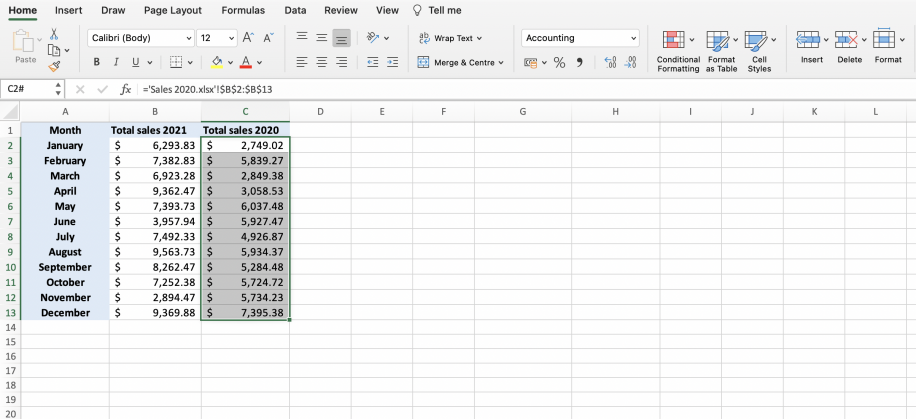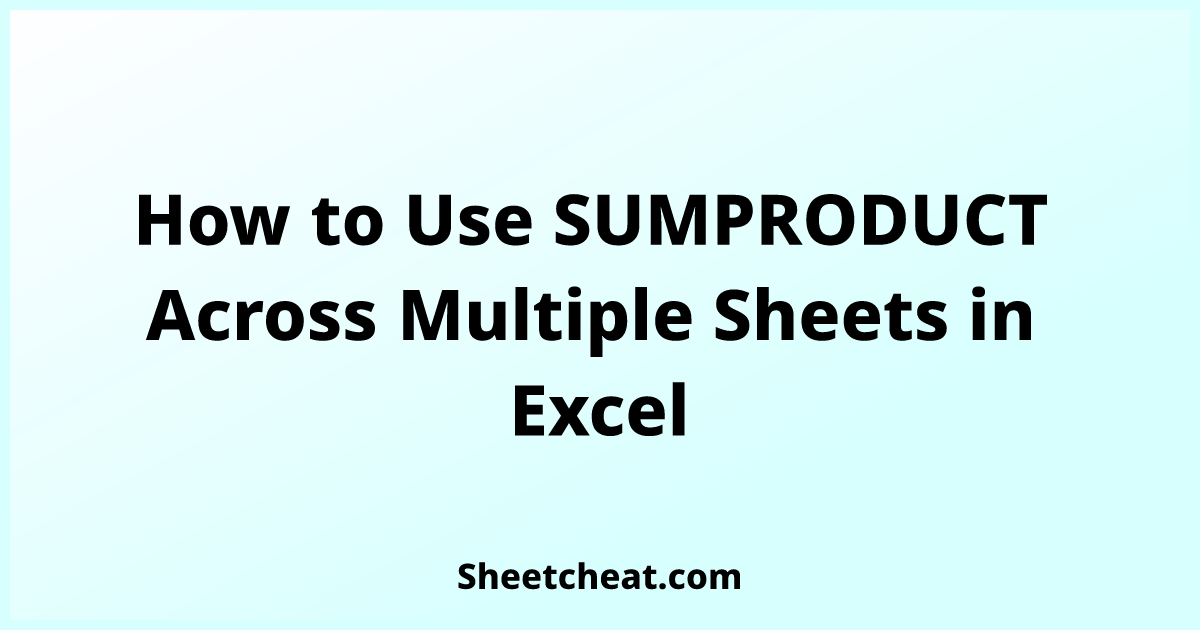Excel Formula Magic: Referencing Multiple Sheets Easily

Managing large datasets in Microsoft Excel can be overwhelming, especially when data is spread across different worksheets. However, Excel provides powerful tools that allow you to make references between sheets, turning complex data management into an efficient, seamless task. This post will guide you through the art of referencing multiple sheets in Excel, from the basics to advanced techniques, ensuring your data analysis is not only accurate but also swift.
Why Reference Multiple Sheets?

Before diving into the how-to, let’s understand why you’d want to reference multiple sheets in Excel:
- Organization: You can keep related data on different sheets for better clarity and organization.
- Automation: Automating calculations and data pull across sheets can save time and reduce errors.
- Scalability: As your data grows, referencing allows you to expand your analysis without overcrowding a single sheet.
Basic Reference Syntax

Referencing cells from other sheets involves using the = symbol followed by the sheet name, an exclamation mark, and then the cell or range reference:
=SheetName!CellReference
Here’s how you apply it:
- If you’re in “Sheet2” and want to reference A1 in “Sheet1”, you’d write:
=Sheet1!A1
Referencing Multiple Sheets: 3D References

Excel’s 3D reference feature allows you to reference the same cell or range across multiple sheets. It’s particularly useful for consolidating data:
=SUM(Sheet1:Sheet3!A1)
This formula would sum the value in cell A1 from Sheet1, Sheet2, and Sheet3.
Advanced Techniques

Using INDIRECT for Dynamic References

The INDIRECT function can turn text strings into cell references, allowing for dynamic sheet referencing:
=INDIRECT(“Sheet”&A1&“!B2”)
Here, if A1 contains “1”, it would reference B2 in “Sheet1”. This can be particularly useful when you need to reference sheets based on values in cells or to automate worksheet functions.
Creating a Summary Sheet

A summary sheet can compile data from multiple sheets. Here’s a basic table structure you might use:
| Item | Q1 | Q2 | Q3 | Q4 |
|---|---|---|---|---|
| Widget A | =Q1!B3 | =Q2!B3 | =Q3!B3 | =Q4!B3 |
| Widget B | =Q1!B4 | =Q2!B4 | =Q3!B4 | =Q4!B4 |

🔍 Note: Make sure the sheet names (Q1, Q2, etc.) exactly match your workbook.
Using VLOOKUP Across Sheets

You can enhance VLOOKUP to work across sheets by specifying the sheet name in the table array argument:
=VLOOKUP(A2,Q1!A2:D100,2,FALSE)
This formula looks for A2 in the first column of A2:D100 in the “Q1” sheet, returning the value from the second column.
Referencing Data with Power Query

Power Query is Excel’s data transformation and preparation tool. It can also handle referencing multiple sheets:
- From the Data tab, select “Get Data” > “From Other Sources” > “Blank Query.”
- Enter a formula like
=Excel.Workbook(File.Contents(“C:\yourfile.xlsx”), null, true)to access all sheets. - Navigate through the sheets and combine data as required.
Power Query provides a GUI to combine and transform data from multiple sources, including different sheets in the same workbook.
Final Thoughts

Mastering the art of referencing between Excel sheets can significantly boost your productivity when dealing with large datasets. From basic syntax to dynamic references using functions like INDIRECT or advanced tools like Power Query, Excel provides a rich set of tools to manage and analyze data efficiently.
Remember, while these techniques streamline your workflow, careful naming and organization of sheets are crucial to avoid errors. With practice, these methods will become second nature, allowing you to tackle data management tasks with confidence and speed.
Can I reference data from another Excel workbook?

+
Yes, you can reference data from another workbook by using the workbook’s name followed by the sheet name, like =[WorkbookName]SheetName!CellReference.
How do I update references when moving sheets?

+
If you move sheets within the same workbook or rename them, you might need to update your references manually. Excel does not automatically update references when sheets are moved or renamed.
What are the limitations of using Power Query for sheet referencing?

+
Power Query is powerful, but it does require some learning curve. Limitations include the need to refresh queries when data changes, and some Excel formulas might not be directly convertible to Power Query expressions.



